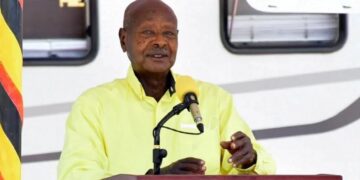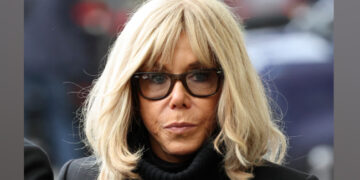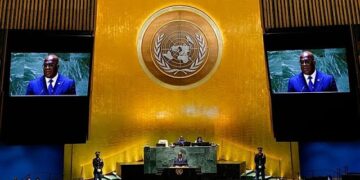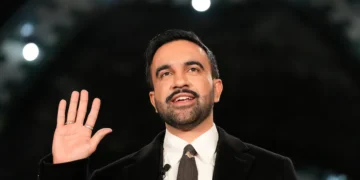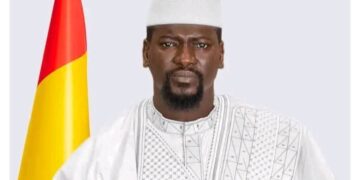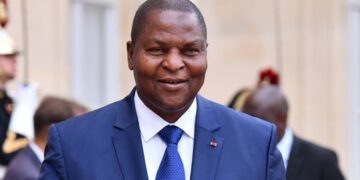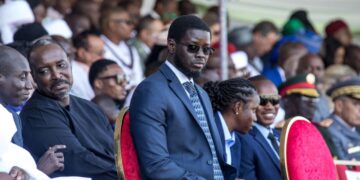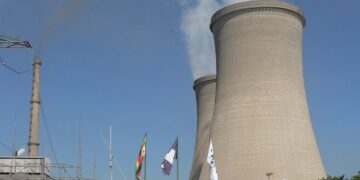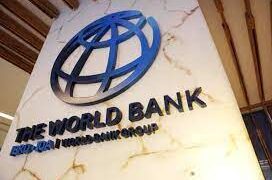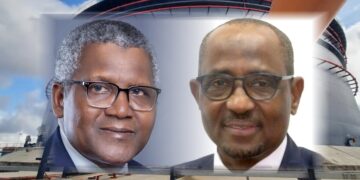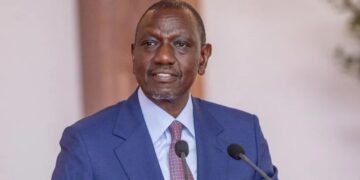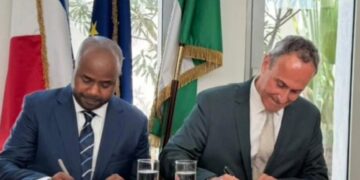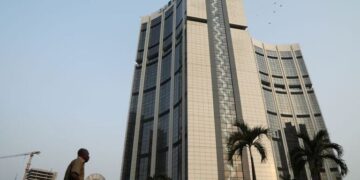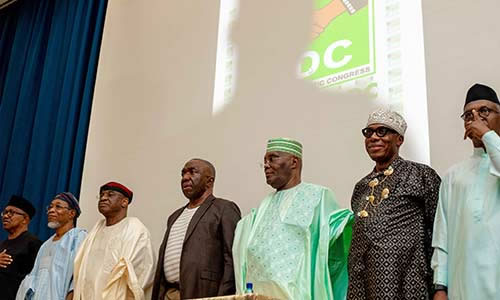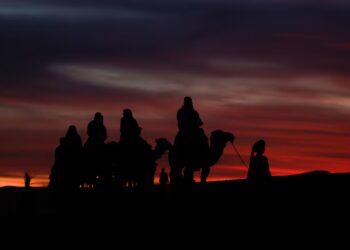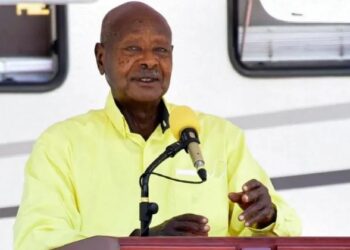In a seismic shift for Nigerian politics, former presidential rivals Atiku Abubakar of the PDP and Peter Obi of the Labour Party have joined forces under the African Democratic Congress, setting the stage for a high-stakes showdown against President Bola Tinubu in the 2027 elections.
This development matters because it is a historic coalition that marks Nigeria’s most significant political realignment since 1999. The merger unites two opposition heavyweights who collectively won 54 percent of the 2023 vote compared to Tinubu’s 37 percent. Their goal is to prevent a repeat of 2023’s split opposition vote, which handed Tinubu victory despite low approval ratings.
The ADC has gained new muscle almost overnight. The party, once a minor player, now boasts defectors from the APC and PDP, including former Senate President David Mark, former Kaduna Governor Nasir El-Rufai, and former Transport Minister Rotimi Amaechi.
The likely 2027 ticket is already generating intense speculation. Atiku, 78 years old, the ex-VP and five-time presidential aspirant, is expected to lead the ticket. Obi, 63, the Labour Party’s 2023 star, may run as VP, reuniting their 2019 PDP ticket that lost to Buhari. Some analysts suggest Obi’s youth-driven Obidient movement could demand he tops the ticket instead.
Meanwhile, Tinubu’s countermove has been swift. The APC has endorsed Tinubu for re-election, betting on the advantage of incumbency. His weakness lies in economic reforms such as fuel subsidy cuts and naira devaluation, which remain deeply unpopular amid soaring inflation. His strength, however, is precedent. No Nigerian president has lost a re-election bid since 1999.
The ripple effects on the PDP and Labour Party are enormous. The PDP is in crisis, as losing Atiku and other big names risks reducing it to a regional party. The Labour Party faces an existential threat because without Obi, it may struggle to retain the momentum it built in 2023. The ADC’s rise could see it eclipse the PDP as the main opposition, especially with its new national structure and heavyweight defectors.
Yet the coalition faces key challenges. Internal rivalry could erupt over whether Atiku and Obi’s camps can share power smoothly. The APC’s war chest is formidable, as Tinubu’s party controls federal resources and 22 state governors. Voter trust remains a hurdle, since many Nigerians are skeptical of recycled politicians promising change.
What comes next will define the race. The ADC plans to rally disaffected PDP and Labour supporters and position itself as the united alternative. The APC will likely highlight Tinubu’s incumbency while painting the ADC as an unstable merger of rivals.







